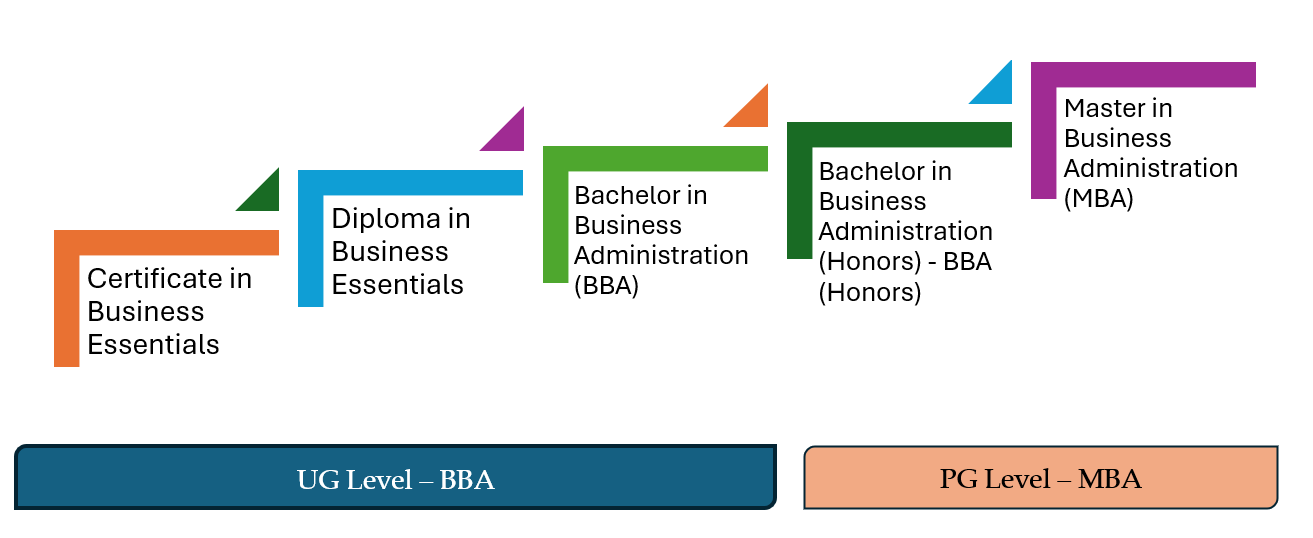IIM Shillong’s Integrated Program in Management seeks to cultivate leaders whose vision extends beyond commercial success. It nurtures well‑rounded minds capable of guiding their organisations and communities responsibly into the future, and it aspires to produce executives whose business acumen is harnessed for justice and the collective good.
The IPM Curriculum is a dynamic pedagogical architecture which is self-evolving and directing trends and practices in Management. Envisaged to cater to the needs of autonomous Self-directed Learners, hence each of the following stages marks a phase of intellectual, emotional, and ethical growth:
Stage 1: Emerging: Students arrive with curiosity and potential. The focus is on building a strong academic foundation, self-awareness, and discipline, setting the stage for deeper learning.
Stage 2: Developing: Learners start connecting concepts across disciplines. Critical thinking and effective communication are emphasized, while exposure to diverse ideas broadens their perspective.
Stage 3: Established: Students gain confidence and functional competence. They apply knowledge in structured settings, collaborate in teams, and engage with real-world scenarios.
Stage 4: Proficient: At this point, students handle complex managerial problems with maturity. They integrate learning across domains and begin specializing in areas aligned with their interests.
Stage 5: Transformative: The final stage shapes students into reflective leaders who are ethically grounded and socially conscious. They are prepared to lead in dynamic environments and contribute meaningfully to organizations and society.

















